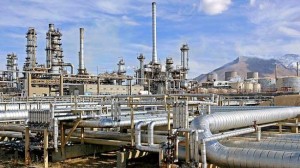Evaluation of Stress Corrosion cracking of Inconel 718 in oil and gas field
Inconel 718 is sensitive to stress corrosion cracking in hot waters, in caustic solutions and in hot chloride solutions, comprising of hydrogen sulfide or acids. Many stress corrosion cracking studies performed for the aerospace plants are not relevant to the oil and gas plant applications of the specificity of conditions needed for stress corrosion cracking. In deionized water and caustic solutions, the stress corrosion cracking resistance enhance with increased aging temperature equivalent to for hydrogen embrittlement. It is not understood if it is relevant to the stress corrosion cracking in high temperature chloride solutions usually for oil and gas field condition.
The influence of heat processing on the chloride stress corrosion cracking resistance of Inconel 718 in oil field conditions have not been fully tested. It is ironical as the stress corrosion cracking behaviour limits to the use in the vigorous conditions. Inconel 718 is sensitive to chloride cracking in boiling magnesium chloride solution at 154oC and other high temperature conditioning comprising of chloride, sulfur, oxygen or acids. However not specific to Inconel 718 the availability of hydrogen sulfide widely speeds up the high temperature chloride stress corrosion cracking of nickel based alloys.
Hot chloride stress corrosion cracking reduces the highest environmental temperature for Inconel 718 in oil plants. While Inconel 718 attains good resistance to chloride stress corrosion cracking in diverse high temperature chloride containing solutions, it is sensitive to the presence of elemental sulfur. Elemental sulfur is noticed in conditions with high H2S partial pressures. So, in the presence of elemental sulfur, the highest temperature limit for Inconel 718 is about 250oF to 300oF or 121oC to 149oC. Actually, wellhead temperatures and temperatures of safety valves are controlled below 260oF in few applications.
In some studies, it is found that gamma double prime alloys are less sensitive to stress corrosion cracking as compare to gamma prime alloys as of findings on hydrogen embrittlement. While there is not sufficient information on Inconel 718, data on other precipitation hardenable alloys similar to Inconel 718 refer that higher temperature heat processing and the absence of grain boundary precipitation is advantageous for chloride stress corrosion cracking resistance. As a result, where stress corrosion cracking limitations applicable, higher temperature aging processing are used to increase life and enhance resistance to chloride stress corrosion cracking.
A few extremely corrosion resistant precipitation hardenable alloys are found to be useful in the oil and gas plants. Commonly used alloys in oil and gas industry are Inconel 718, Inconel 625, Monel K500 etc. Inconel X750 is widely used however its applications are less due to its sensitivity to hydrogen embrittlement and stress corrosion cracking. In vigorous applications, alloys used are Inconel 718 and Inconel 625. Among these alloys, Inconel 718 can attain very high yield strengths for applications that demand strength levels. Alloy 718 has the benefit over the alloys. Although for the severe applications, alloy 625 attains higher chloride stress corrosion cracking resistance.


